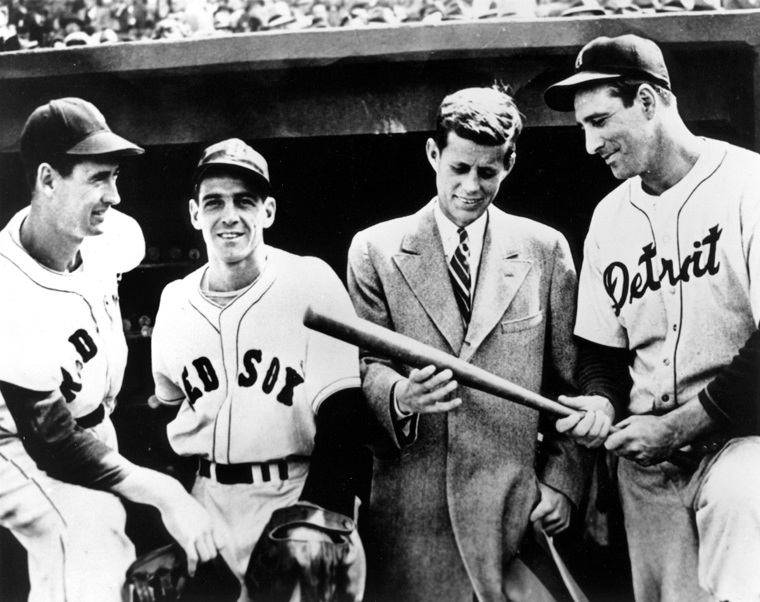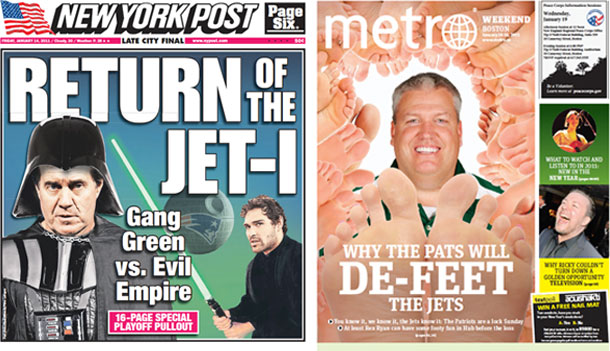Published January 14, 2011

Fenway Park, Boston, April 1946. Ted Williams, Eddie Pellagrini, John F. Kennedy and Hank Greenberg. (Unknown/John F. Kennedy Presidential Library)
On Thursday, after digging up President John F. Kennedy’s application to Harvard, I erroneously said the JFK Library had finished digitizing “most” of its presidential archives.
Not even close.
“This is one half of 1 percent of our collections,” said James Roth, an archivist at the JFK Library who joined in the monumental effort.
“We’re expecting to continue on through the next few decades, and hopefully, as technology increases, we’ll be able to put more and more material up faster.”
Decades! The 200,000 pages of documents now online are a fraction of the 48 million pages in the Kennedy archives. While other presidential libraries feature some materials online, this is by far the most expansive digital collection. Local tech companies such as EMC, Raytheon and Iron Mountain donated the hardware and software.
Roth told me it wasn’t so much the scanning that took time — yes, the archivists place every page onto a flatbed scanner by hand — but the meta-tagging. Every film clip, transcript, phone recording and doodle has to be described and indexed. It is arduous. The first batch took almost four years.
But hugely rewarding. “The beauty of seeing all these different documents is that you get a sense that there is no one moment of ‘That’s when a decision was made’,” Roth said. “It’s the process, the context of the documents, and how individual ideas were formed and how they changed.”
One of his favorite examples is the evolution of Kennedy’s famous inaugural address, which was delivered 50 years ago next week. You can see the late Ted Sorensen’s original draft with JFK’s notes in the margins. The famous “ask not” line began as “Ask not what your country is going to do for you…” Kennedy labored over that sentence and settled on “can.”
Now the born-digital generation, raised in the era of Barack Obama and the Internet presidency, can discover a bit of history they might not otherwise have bothered to find.
